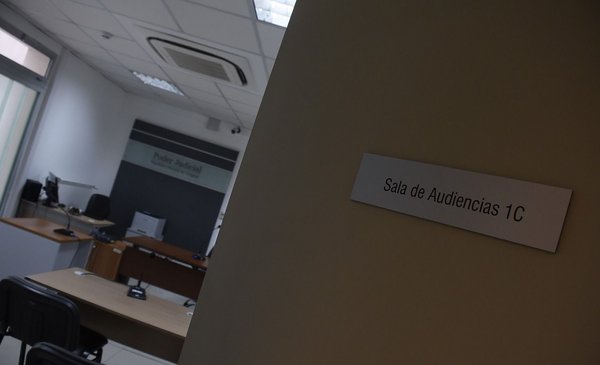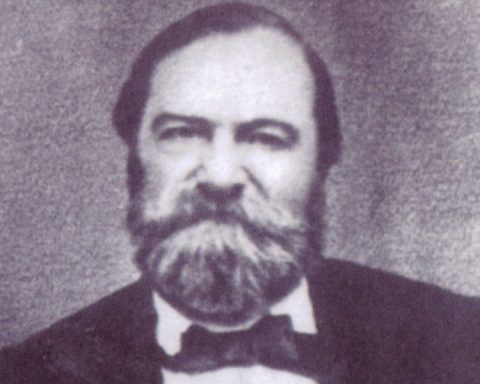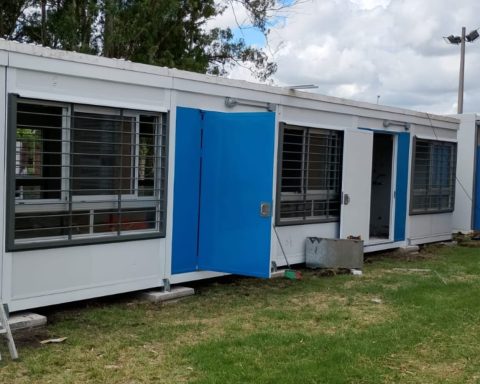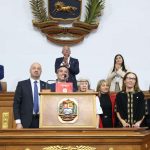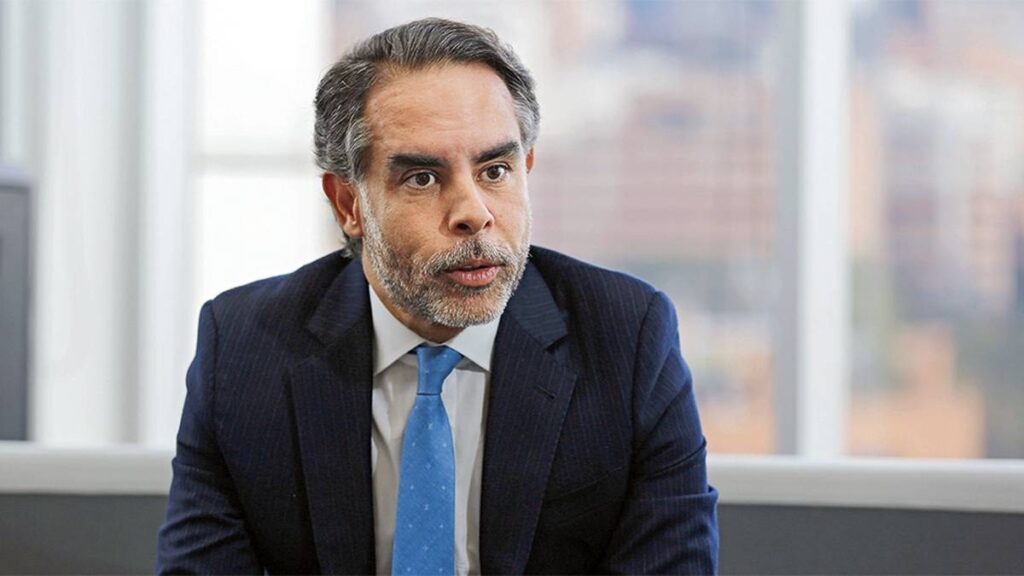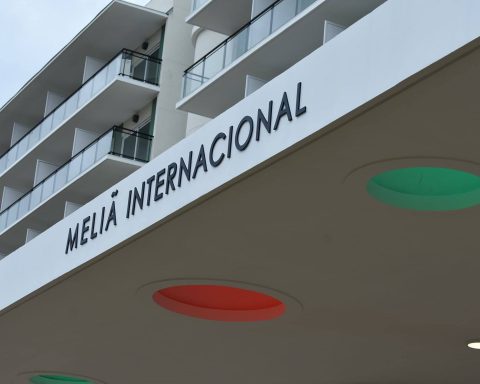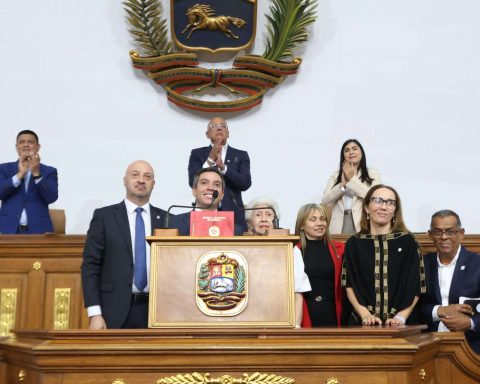The judges, who in Uruguay maintain a low profile and shun the cameras, have established strong positions in recent months and this led them on some occasions to be the protagonists of public discussions.
The Association of Magistrates of Uruguay took to the international arena the decision of the Supreme Court of Justice of declaring unconstitutional the law that reforms its promotion mechanism, thus confronting the highest body of the Power of attorney. Inside the association, it was also news crossroads between the two main currents on whether or not they should rule on the criticism of Judge Alejandro Recareywhich suspended the anticovid-19 vaccination in children under 13 years of age – a ruling later revoked in the second instance.
In that context of internal bids and with the Court, the association will elect new authorities this weekend.
Terms last two years, and the latter was topped List 1, as it had been for the previous four years. The president-elect had been Cristina Cabrera, who resigned a short time later citing forceful discrepancies. This led to the assumption of the former Minister of the Court of Appeals Graciela Gatti, who served most of the period, until a little over a month ago when she left office to take over as a judge in a court in The Hague (Netherlands). In her place was the also minister Beatriz Larrieu.
For him officialismnow I know civil judge Darwin Rampoldi postulates.
The opposition listthe 1994, opposition, presents the contest judge Leonardo Méndez as a candidate. This group emerged in the previous elections, managed to win three positions on the board, and has sought to find its own voice within the association.
According to Rampoldi, the main achievements of the official list have been the establishment of electronic voting, which has been in force since 2016, and that its dialogical stance It has allowed them to take the conflicts arising from the judicial career to the international arena. AMU “has intervention in the International Union of Judges and in the Association of Judges of Latin America. Now we were able to give international relevance to the unconstitutionality of the promotion law because we had that fluid relationship, when there was a certain lack of support for how the board was handling international affairs,” he told The Observer.
For his part, Méndez -of the opposition- pointed out that the irruption of his list in the association has to do with the fact that they noticed that they were having a “somewhat lukewarm” position when it comes to defending workers. In this sense, he pointed out that the 1994 list asked the board of directors to treat “in another way” the impact of the covid-19 tax on the magistrates (when it was decided to charge a tax for the health emergency to public officials) and not That claim was taken into account. In addition, they present objections about the way in which the Court uses disciplinary power: “The corporation in the legitimate exercise of its functions does so, but the same actions are not always measured with the same yardstick. We felt that the association looked the other way of the basic and essential concerns that we judges have”.
The candidates on both lists agree almost completely on the diagnosis of the problems, but the differences arise when both describe their imprints. “Very serene in judgment, noble in action and united for the common good. Dialogue is always our first tool and we exhaust it completely before taking any other. Be it at the level of the Court, of Parliament,” Rampoldi summed up. In contrast, Méndez synthesized The Observer the profile of your group: “We propose a more union vision, which seeks the protection of the rights of judges from their angle as public workers. Beyond the fact that we provide an essential service for the rule of law, we are public workers (… .) We historically asked ourselves 50 times if we could claim something. Why not if we are workers?
The shock for Recarey
Alejandro Recarey is a member of the Méndez list. After criticism from Álvaro Delgado – who called his ruling “nonsense” – and Fernando Pereira – who described it as a “profound mistake” – 1994 issued an internal statement saying that it generated “deep concern”. They claimed that it threatened his technical independence.
Speaking publicly had been contraindicated by the association’s communication agency, but the opposition did so anyway. According to the list 1 of the ruling party, that was for “the need to mark their own profile and take advantage of the situation to seek revenue for the next elections of the association“.
The differences
communication strategy
Rampoldi understands that it is important to deepen the association’s communication. During this management, the organizational communication company Signo was hired by tender to aim for a professional strategy. In this new stage, the dissemination of decisions of the group was set as an objective, but also the greater explanation of the judicial function. “People know how Parliament works, but the role of the magistrates makes us more withdrawn and that’s good, but it is important to know not about individual cases but how the Judiciary works in a democratic and republican state. like Uruguay,” he said.
For his part, Méndez focused his vision of communication in a different way and focused on the public statements of some political actors. “You have to face whoever has to face it: before the Court, the political system. Here there were pressures from different operators to what is the free exercise of the jurisdictional function and that in a State of Law is something to which you have to pay attention (…) Criticizing the sentence is fine, the problem is when the sentence is passed on to the person who dictates it. If you do that, you are trying to affect the technical independence of the magistrate. Luckily, the judges are strong and independent people, but it is not the same to work quietly”, he valued.
relationship with the interior
The ruling party’s candidate proposes to make a “policy of closeness”, which would consist of forming departmental commissions –something already arranged but that sometimes were not constituted– “to learn about local realities.” Meanwhile, the opposition candidate suggested working to improve the “very difficult” conditions in which his colleagues work in interior courts.
common points
The judicial career
Less than a month ago, the president of the association, Beatriz Larrieu, announced that they would take the decision of the Supreme Court of Justice to the international organizations to declare the law that established a new promotion system for judges unconstitutional. “The association had collaborated and made contributions to that law (…) in the search for objective, clear, transparent criteria,” Larrieu said, adding that they understood that it was constitutional. Rampoldi promised to continue this path.
Although Méndez assured that this issue began to be dealt with in the association due to the impulse that his list gave him, he agreed that the need to have a more transparent career is not discussed.
Salary readjustment
The judges request that the salary dispute that has been dragging on since 2011 be completed, when during the government of José Mujica the equality of the ministers of the Court with the ministers of State was eliminated and from there the salaries of all ranks were affected . Both candidates understand that it is important to remedy it as soon as possible. Méndez added that the items for academic improvement, which have not received an increase since then, must be adjusted.
maternity leave extension
The candidates agreed that the work of the magistrate does not allow for part-time work, which is why the judges should see their maternity leave extended.
How and when to vote?
The vote is secret and electronic. The almost 500 members can vote with their username and password on the page amuvotacion.uy between 7:00 p.m. on Saturday and 11:00 a.m. on Sunday. If you do not have a username and password, you can request it by sending an email to [email protected], informed Fernando Gómez Pardo, secretary of AMU.
